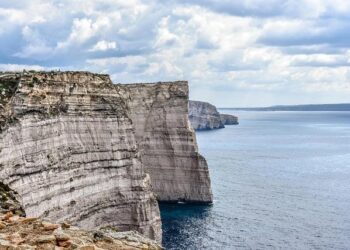Malta has received three formal submissions for its inaugural offshore wind farm concession, marking a significant milestone in the country’s pursuit of renewable energy. The bids, submitted by leading energy firms, signal strong interest in harnessing offshore wind potential to diversify Malta’s energy mix and reduce its dependence on fossil fuels. As the government evaluates the proposals, the project is poised to play a critical role in advancing Malta’s sustainability goals and meeting its climate commitments.
Malta Sees Strong Interest as Three Bidders Vie for Offshore Wind Farm Concession
Malta’s ambitious push into renewable energy has sparked notable competition, with three separate consortia submitting bids for the country’s maiden offshore wind farm concession. These bidders, representing a blend of established energy giants and innovative green startups, underscore the growing confidence in Malta’s potential to harness offshore wind energy as part of its sustainable development plans. Each bid offers unique technical approaches and investment commitments, suggesting a dynamic contest that could shape the island’s energy landscape for decades.
Key highlights from the submissions include:
- Consortium A: Focuses on maximizing turbine efficiency with cutting-edge technology partnerships.
- Consortium B: Proposes strong integration with Malta’s existing grid infrastructure, emphasizing local job creation.
- Consortium C: Offers a phased development strategy to accelerate initial power generation.
| Consortium | Capacity (MW) | Investment (€ mln) | Estimated Commissioning |
|---|---|---|---|
| Consortium A | 150 | 350 | 2027 |
| Consortium B | 130 | 320 | 2026 |
| Consortium C | 140 | 340 | 2027 |
Evaluating Technical Proposals and Environmental Impact in Malta’s Renewable Energy Push
The review of the three technical proposals submitted for Malta’s inaugural offshore wind farm has reached a pivotal stage, with authorities emphasizing rigorous evaluations to balance innovation with environmental stewardship. Each proposal is being examined on key parameters, including turbine technology, grid integration capacity, and projected energy yield, while ensuring compliance with Malta’s stringent maritime regulations. Officials have highlighted the integration of adaptive technologies that optimize performance under Mediterranean wind conditions as a critical differentiator among the submissions.
Parallel to technical assessment, a comprehensive environmental impact analysis is shaping decision-making. This includes studies on marine biodiversity, seabed disturbance, and potential effects on local fisheries. The assessment highlights several factors:
- Minimal disruption zones to protect sensitive habitats.
- Measures to mitigate risks during construction phases.
- Long-term monitoring plans to track ecosystem changes.
These efforts reflect Malta’s commitment to advancing renewable energy while safeguarding its natural heritage, setting a benchmark for sustainable offshore development in the region.
| Criteria | Proposal A | Proposal B | Proposal C |
|---|---|---|---|
| Estimated Capacity (MW) | 100 | 120 | 110 |
| Environmental Mitigation Score | 8.5/10 | 9.0/10 | 8.0/10 |
| Projected LCOE (€ / MWh) | 75 | 70 | 72 |
Recommendations for Regulatory Framework Enhancements to Support Malta’s Offshore Wind Ambitions
To accelerate Malta’s ambitions in establishing its first offshore wind farm, regulatory frameworks must evolve to address both environmental concerns and investor confidence. Key recommendations include the introduction of adaptive licensing procedures that allow for phased project developments, reducing upfront risks while maintaining strict compliance with marine protection standards. Enhancing transparency through publicly accessible impact assessments and decision-making timelines would also foster stronger community engagement and trust in the process.
Moreover, introducing clear financial incentives such as tax breaks or guaranteed feed-in tariffs will be crucial to attract competitive bids and international expertise. Strategic coordination between agencies to streamline permit issuance and establish a centralized offshore wind authority could significantly reduce bureaucratic delays. The table below summarizes priority actions to optimize regulatory support:
| Regulatory Focus | Recommended Enhancement |
|---|---|
| Licensing Process | Phased licensing with adaptive environmental reviews |
| Community Engagement | Mandatory public impact disclosures & consultation deadlines |
| Financial Incentives | Tax reliefs and guaranteed pricing schemes |
| Institutional Coordination | Creation of a single offshore wind regulatory body |
Key Takeaways
As Malta moves closer to launching its inaugural offshore wind farm, the three submissions received mark a significant milestone in the country’s push toward renewable energy. Stakeholders and policymakers will now carefully evaluate the proposals to determine which project best aligns with Malta’s sustainability goals and energy needs. The decision will not only shape the island’s energy landscape but also signal Malta’s commitment to green innovation in the Mediterranean region. Further updates on the selection process and project developments are expected in the coming months.
















